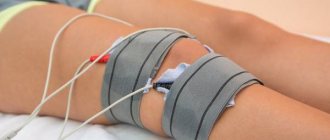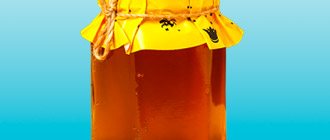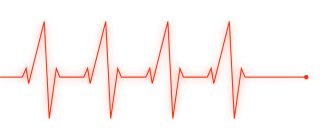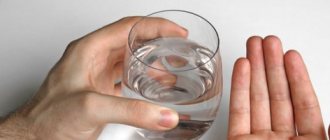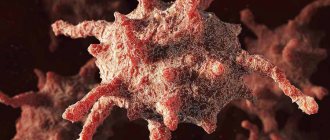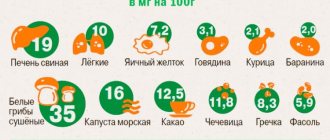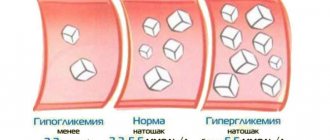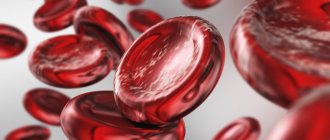Symptoms indicating blood thickening
Doctors identify 8 main signs indicating problems with blood circulation:
- Periodic tingling in the limbs. They are often accompanied by a feeling of numbness. This is a key sign that blood does not penetrate well into the capillaries. As a result, the hands and feet are constantly cold, with a bluish tint.
- Gradual deterioration of vision and hearing. Problems with blood supply affect the key senses of perception of the world around us. Another sign is tinnitus.
- When cuts occur, the blood flows slowly and is dark in color.
- Drowsiness, frequent yawning. Due to problems with blood circulation, the body experiences oxygen starvation. Sleep becomes restless, anxious, intermittent. Even while awake, you feel a loss of strength, lethargy, and fatigue. This condition is also called chronic fatigue syndrome.
- Unreasonable muscle pain, weakness in the body. The pain syndrome is often localized in the back of the head, shoulders, and upper back.
- Labored breathing. It is difficult for the heart to pump viscous blood, which causes arrhythmia, which causes shortness of breath.
provokes arrhythmia, which causes shortness of breath. If you experience one or more signs, you should consult a doctor and undergo a comprehensive examination. You will need to undergo tests and other studies as directed by a specialist.
Signs of varicose veins
With varicose veins, it is vital to monitor blood viscosity indicators. This is a key point in the treatment and prevention of the disease.
The main signs of varicose veins are:
- pain in the legs when walking, at rest;
- visual changes in the skin - hyperpigmentation, the appearance of vascular networks, bulging dilated veins;
- tired legs at the end of the day.
Ignoring the symptoms of varicose veins is fraught with serious consequences. The pathology often develops into phlebitis or thrombophlebitis. But to thin the blood in the early stages of the disease or for prevention purposes, it is not at all necessary to use expensive medications. There are a number of natural food products that successfully cope with this task.
Acetylsalicylic acid
Acetylsalicylic acid is the most inexpensive but effective drug that can be bought without a prescription. The medicine is prescribed to prevent blood clots. Acetylsalicylic acid is used to relieve pain, reduce fever and treat inflammatory processes. The drug is effective for varicose veins, headaches, pericarditis, arthritis, Kawasaki disease, fever, Kawasaki disease, as well as for the prevention of heart attacks and strokes. The price of acetylsalicylic acid is about 15 rubles for 20 tablets.
Acetylsalicylic acid
OJSC Pharmstandard-Leksredstva, Russia
Rheumatism, rheumatoid arthritis, infectious-allergic myocarditis;
fever in infectious and inflammatory diseases; pain syndrome of weak and moderate intensity of various origins (including neuralgia, myalgia, headache); prevention of thrombosis and embolism; primary and secondary prevention of myocardial infarction; prevention of ischemic cerebrovascular accidents. In clinical immunology and allergology: in gradually increasing doses for long-term “aspirin” desensitization and the formation of stable tolerance to NSAIDs in patients with “aspirin” AS. from 4
1128
- Like
- Write a review
Signs of thrombosis
Thrombosis and thrombophlebitis are similar to varicose veins in symptoms, but have completely different origins. Varicose veins are not inflammatory in nature, while thrombosis is an inflammation of the venous walls. The main signs of the disease are:
- burning, bursting pain;
- swelling, especially in the ankle area;
- darkening of the skin, the appearance of red stripes in the affected area;
- chest pain;
- feeling of lack of air.
Thrombosis does not always have pronounced symptoms. Patients often confuse it with signs of fatigue and do not take any action. This can lead to harmful consequences, including death.
Wessel Due F
"Wessel Due F" is a natural preparation. Its active substances are sulodexide (a compound of the heparin-like fraction) and dermatan sulfate, isolated from the intestinal mucosa of pigs. The drug thins the blood and strengthens the walls of blood vessels. "Wessel Due F" is prescribed for acute ischemic stroke, microangiopathy, and lesions of peripheral arteries. Within 15 minutes after intramuscular or intravenous administration, the drug begins to work. The price of “Wessel Due F” is about 2,747 rubles.
Wessel Due F
Angiopathy with an increased risk of thrombosis, incl.
and after myocardial infarction; cerebrovascular accident, including the acute period of ischemic stroke and the period of early recovery; discirculatory encephalopathy caused by atherosclerosis, diabetes mellitus, arterial hypertension; vascular dementia; occlusive lesions of peripheral arteries of both atherosclerotic and diabetic origin; phlebopathy, deep vein thrombosis; microangiopathies (nephropathy, retinopathy, neuropathy); macroangiopathy in diabetes mellitus (diabetic foot syndrome, encephalopathy, cardiopathy); thrombophilic conditions, antiphospholipid syndrome (prescribed together with acetylsalicylic acid, as well as after low molecular weight heparins); treatment of heparin-induced thrombotic thrombocytopenia (as the drug does not cause or aggravate it). from 1919
2700
- Like
- Write a review
Risk factors
The main reasons that cause blood thickening, as well as increasing the risk of developing varicose veins and thrombosis, are:
- Hormonal imbalance. Due to disruption of hormone production, the system that controls blood clotting suffers.
- Obesity. Excess weight increases the risk of cardiovascular formations 10 times. There is enormous pressure on the body, as a result of which the blood suffers.
- Taking inappropriate oral contraceptives. They affect the balance of hormones in the body, as a result of which blood clotting indicators are disrupted.
- Smoking. Regular intake of nicotine into the body constricts blood vessels, which causes thrombosis, varicose veins and other pathologies of the vascular bed.
- Taking a number of medications. You should not take pills without a doctor’s prescription - this can lead to serious disruptions in the body, including the circulatory system.
- Chronic stress, anxiety. The increased release of adrenaline into the blood significantly narrows the patency of blood vessels, which can provoke the formation of blood clots.
- Insufficient fluid intake. For normal functioning of the body, you need to drink 1.5-2 liters of water per day (indicators vary depending on the individual characteristics of each person). Water is directly involved in all biochemical processes and affects blood clotting.
Nutrition plays an important role. An unbalanced diet leads to a lack of vitamins, microelements and nutrients in the body that are involved in the process of blood formation and are responsible for regulating its viscosity.
Chime
The active substance of the drug is dipyridamole. “Curantil” helps improve venous and placental outflow, stabilizes blood pressure, dilates blood vessels, improves blood density, etc. “Curantil” is also an excellent immunomodulator that is used to prevent ARVI and influenza. The price of Kurantil is about 590 rubles for 120 tablets.
Chime
Berlin-Chemie (Berlin-Chemie), Germany
The antiplatelet effect of Curantil is associated with its ability to reduce the reverse transport of adenosine into cells, which leads to its accumulation in the extracellular space.
The direct antiplatelet effect of Curantil lies in its ability to increase the antiplatelet ability of PGE1 and suppress the activity of phosphodiesterase in platelets, resulting in the accumulation of cyclic AMP, which has a direct vasodilatory effect on the arteries of the heart, and the accumulation of thromboxane A2 leads to an increase in the lifespan of platelets, due to their reduction aggregation. from 472
1.0 1 review
3674
- Like
- Write a review
Why is it necessary to thin the blood during thrombosis?
Blood viscosity is a vital indicator. If there are problems with it, a number of serious pathologies may develop, including thrombosis, varicose veins and even stroke. Blood clots can partially or completely close the vascular bed, limiting blood flow and causing necrosis and gangrene. Blood clots slow down the supply of oxygen to various organs. Also, increased blood viscosity can lead to coronary artery disease or thromboembolism of the heart and lungs. This is an extremely serious condition that requires immediate treatment.
General contraindications
It should be understood that not all folk recipes are safe. Some herbs and foods, if improperly prepared or consumed in excess, can cause various complications.
Herbal medicine is not recommended in the following cases:
- Carrying a child;
- lactation period.
It should only be accessed after consultation and consent of a physician, regardless of the patient's condition, age, or health status.
When used regularly, folk remedies help achieve positive results and reduce blood density. However, to be sure of the effectiveness of therapy, the test must be performed at least once every six months. If there is no positive effect, the doctor will prescribe another, more effective remedy.
Products that thin thick blood
If you have thick blood, there are certain foods that should be included in your diet.
Fruits and vegetables
- Garlic. A powerful antioxidant with a whole range of beneficial properties. Relieves inflammation, promotes the resorption of blood clots, stabilizes blood viscosity. Must be consumed fresh.
- Tomatoes. They contain the substance lycopene, which reduces the concentration of cholesterol in the body.
- Persimmon. A long-known anticoagulant that thins the blood, prevents the formation of blood clots, and reduces cholesterol levels in the body. Contains a lot of antioxidants that cleanse the digestive system.
- Cabbage. Can be consumed both fresh and fermented. Contains vitamins B and C, which normalize metabolism and improve blood quality.
- Pomegranate. Rich in potassium, necessary for the normal functioning of the cardiovascular system. Protects the walls of blood vessels and prevents their stretching.
Berries
- Raspberries. The berries contain the same active ingredient as aspirin. Only tablets have a negative effect on the body, but raspberries do not. Eat it fresh, as part of jam, or drink decoctions from the leaves.
- Blueberry. Rich in flavonoids, which have a beneficial effect on the condition of the walls of blood vessels.
Herbs and spices
- Ginger, cinnamon, turmeric, celery. They contain coumarin, which effectively thins the blood and prevents the development of thrombosis.
- Mint. It has a beneficial effect on the gastrointestinal tract and contains salicylates that affect blood clotting.
- Oregano. Add a pinch of crushed leaves to dishes when cooking to help the body regulate blood viscosity.
- Paprika. It has a warming effect, accelerates metabolism, has a positive effect on the condition of the blood, and prevents the formation of thrombosis.
- Liquorice. It is used as a medicinal and prophylactic agent for varicose veins, thrombosis, and atherosclerosis.
- Thyme. Like mint, it is rich in salicylates, which help the body control water balance.
Drink
- Water. We consist of 90% of it, and the body vitally needs normal water balance.
- Green tea. Contains a lot of antioxidants that prevent cardiovascular problems. It has a diuretic effect, resulting in the removal of waste and toxins from the body. It is better to drink tea in the morning, because it contains caffeine.
Other useful products
- Fatty fish. Contains a lot of useful substances that prevent the appearance of atherosclerotic plaques.
- Seaweed and other seafood. A high concentration of iodine not only normalizes blood viscosity, but also has a beneficial effect on vascular tone.
- Honey. It has a beneficial effect on the condition of the blood and prevents the formation of blood clots. Because It is high in calories, the permissible consumption rate is 1 tablespoon per day.
- Linseed oil. Contains healthy vegetable fats that restore the elasticity of vascular walls.
A pineapple
Pineapple baked with pepper, recipe here
The tropical fruit contains a special protein-breaking enzyme, bromelain, which is considered an effective remedy for cardiovascular diseases and high blood pressure. Research shows that bromelain can thin the blood, break up blood clots, and reduce their formation—include pineapple in your diet if you want to prevent thickening of your hair. Bromelain also has anti-inflammatory properties.
Blood thinners
There are a number of blood thinners available. They are divided into two types:
- Anticoagulants that prevent the formation of blood clots. The most popular are Heparin, Warfarin, Edoxaban.
- Anticoagulants that control platelet production. The most famous drug is Aspirin, all the others are its variations.
You cannot take pills without a doctor's prescription. Although they are sold without a prescription, they should not be taken unless indicated - this can lead to serious consequences.
Deplatte
The drug is prescribed for the prevention of ischemic stroke, heart attack, peripheral arterial occlusion, and atrial fibrillation. The active ingredient of the drug is clopidogrel. During treatment, doctors often use Deplatte together with acetylsalicylic acid to prevent the formation of blood clots in acute coronary syndrome. The price of “Deplatta” is about 439 rubles.
Deplatte
Torrent Pharmaceuticals, India
Prevention of thrombotic complications in patients with myocardial infarction, ischemic stroke or peripheral arterial occlusion.
In combination with acetylsalicylic acid for the prevention of thrombotic complications in acute coronary syndrome: with ST segment elevation with the possibility of thrombolytic therapy; without ST segment elevation (unstable angina, myocardial infarction without Q wave), incl. in patients undergoing stenting. Prevention of thrombotic and thromboembolic complications, including stroke, in atrial fibrillation (atrial fibrillation) in the presence of at least one risk factor for the development of vascular complications, the inability to take indirect anticoagulants and the presence of a low risk of bleeding (in combination with acetylsalicylic acid). from 329
225
- Like
- Write a review
Additional recommendations and prevention
Taking medicinal herbs and healthy foods alone will not make a global difference to your blood clotting situation if you are overloading your body and ignoring other principles necessary to maintain health.
It is extremely important to change your approach to nutrition. You should exclude harmful foods from your diet - fried, spicy, salty, flour, sweet. It is better to bake dishes in the oven or steam them.
Another point is moderate physical activity. Many people today lead a sedentary lifestyle. You need to be in the fresh air for at least half an hour a day, walk a lot. If your schedule allows and you want to, go to the gym, dance hall or swimming pool.
You should also give up bad habits. Alcohol and cigarettes have never made anyone healthier. Many people consider proper nutrition expensive, but much more money is spent on unhealthy foods and bad habits. Your health is only in your hands! And when the first alarming symptoms appear, indicating problems with the cardiovascular system, you need to consult a doctor.
Still have questions about thrombosis prevention?
Free consultation with AngioClinic specialists
Author
Salmina Daria Vladimirovna
Geneticist. Graduated from the Chelyabinsk State Medical Academy. She completed an internship at the Northwestern State Medical University named after I.I. Mechnikov.
What should you avoid?
But it’s not enough to just include food in your diet that will help thin your blood. You should also refuse (or rather, minimize their consumption) from those foods that contribute to blood thickening. These include:
- Almost all dairy products. Milk contains casein, which is a special carbohydrate that breaks down into derivative elements only under the action of certain groups of enzymes. Simply put, these are complex carbohydrates, which take many times longer to digest than fructose and other simple sugars. This is why dairy products thicken the blood.
- Alcoholic drinks. All of them contain ethyl alcohol, which is perceived by the body as poison. Its breakdown, neutralization and removal from the body is accompanied by the use of a huge volume of liquid (and this is why a person feels very thirsty after drinking alcohol). At the same time, alcohol increases blood viscosity exponentially. This is true even for small amounts of weak alcohol. At the same time, you should definitely avoid vodka and beer, which tend to thicken the blood. Use cognac with caution. But red wine has a special effect on the blood, which you can read about in a separate article.
- Animal fats. Pork, beef, sausage products - all contain animal fats that break down into lipid compounds. When there is an excess of them in the body, they are not absorbed, but are deposited in the subcutaneous tissue, as well as in the blood vessels themselves. You shouldn’t completely exclude animal fats from your diet, but it should still be based on grains, vegetables and fruits.
- Potato. In principle, absolutely all products that contain a large amount of starch (for example, rice) can be written here. It is transformed into carbohydrates in the body, which contributes to a sharp increase in sugar levels in the blood plasma and its thickening.
- Bananas. Although they are fruits, they contain a large amount of carbohydrates. If you do eat them, then no more than 2 medium-sized fruits per day (and even less for children).
